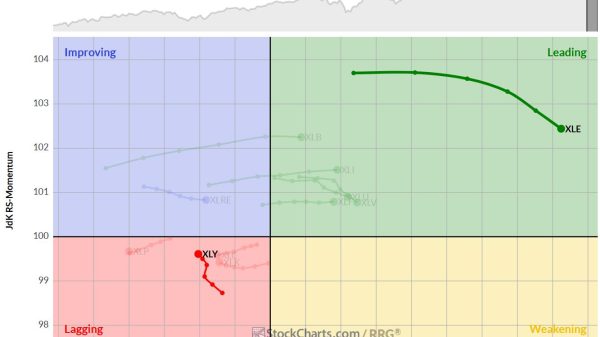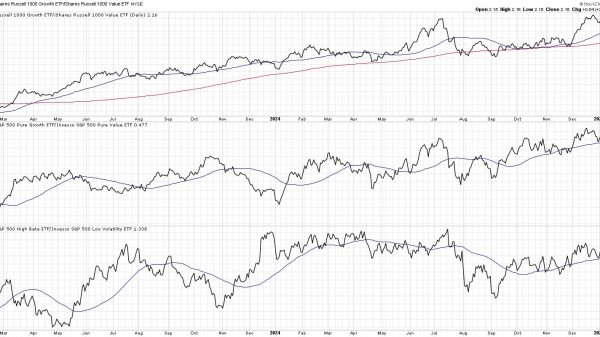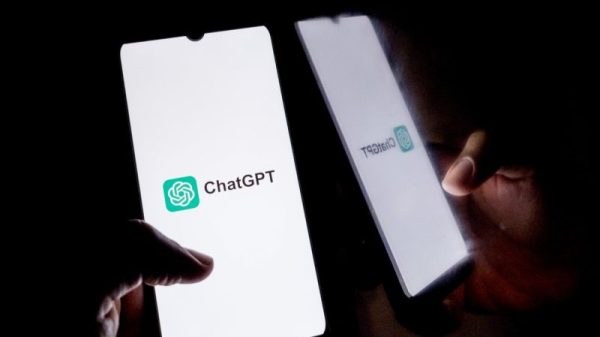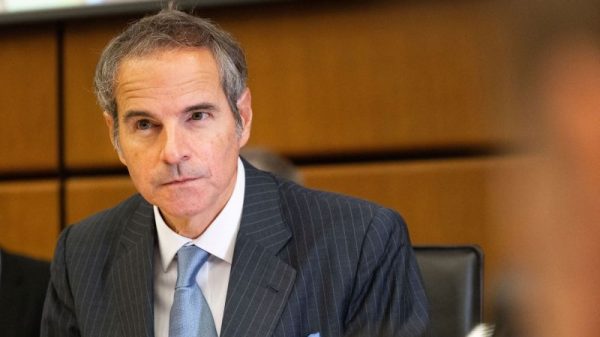“The Bear” got on my good side early by starting most episodes with scenes from my favorite city, the one Gwendolyn Brooks called “the city of the out-stuck neck.” In its first two seasons The Bear stuck its neck out, too.
It takes an out-stuck neck to be all-in on getting a job done and doing it well. Today it is more common for us to protect our necks by endorsing work-life balance and only being all-in on the checking of DEI (diversity, equity, and inclusion) boxes.
As The Bear begins, Carmen “Carmy” Berzatto (“Bear”) leaves his job as the sous chef of a 3-star restaurant in New York and returns to Chicago to take over his family’s beef sandwich shop. The shop is struggling to survive: Carmy’s father suddenly and mysteriously left town, and his brother Mikey took over management. Mikey had charisma, viewers learn, but neither the drive nor the knowledge to run the shop; the shop was deep in debt, he was overwhelmed, abused drugs, and found no way out.
Carmy’s staff are wounded misfits who argue, yell, and then usually pull together, sometimes just to make it to closing time, other times to make the food better. Carmy has them call each other “chef,” a sign of respect, that they all matter for getting the job done.
Carmy is what I call in my Openness to Creative Destruction book, a “project entrepreneur.” His project is to transform his family’s Italian beef sandwich shop into a fine dining restaurant whose food and service is worthy of a Michelin star. In pursuit of his project, Carmy exemplifies many of the traits common among project entrepreneurs.
Carmy seeks to learn, even when the lessons are humiliating. He performs low-level tasks at top restaurants in Copenhagen, New York, and Chicago, in order to learn the skills and ingredients of creative cooking, and how to manage an efficient kitchen. He perseveres, even at the price of repeatedly having to say, “yes, chef” to the obnoxious Chef Fields in the Empire restaurant, who calls Carmy short, slow, “talentless,” finally whispering that “you should be dead.” But all the while, gathering experience.
Carmy is demanding of his staff, constantly asking them to do better and quicker in service of the project. He adopts the motto of a Chicago restaurant where he trained, EVERY SECOND COUNTS. We often see the tattoos on Carmy’s hand: the first finger has “S”, the second “O”, and the third, “U”, short for Sense of Urgency: that drive in pursuit of a project goal is essential.
Carmy always demands more from himself than from anyone else. He arrives earlier and stays later. We see him on his hands and knees scrubbing the floor, standing in a trash bin breaking up cardboard boxes, on his back with a screwdriver under a table that needs leveling.
Project entrepreneurs, especially at the start, are usually self-funded (meaning funded by the entrepreneur themselves or their close family or friends). Project entrepreneurs are not conspicuous consumers, choosing instead to pour any revenue back into the project. Carmy does not even own a car and we see nothing conspicuous in his apartment and clothes.
The main investor in Carmy’s project is his “Uncle” Cicero, who tells him to “be the guy” who gets the hard, risky project done. Cicero helps in more than one way. In Chicago, politicians mandate many licenses, permits, and inspections. To get an inspector to arrive quickly enough so the new restaurant can open in time, Cicero gives Carmy an envelope of money to drop off at the inspector’s post office box. (Some would accuse Carmy of immorality in delivering the bribe. But I would locate the immorality with those who require bribes in order to regulate honestly and quickly.)
Carmy constantly experiments and innovates to advance his project. At great cost in time, energy, and money, he starts to change the menu every day. He removes a best-selling dish that “doesn’t make sense on the menu.” He arranges ingredients on a plate, re-arranges, and tastes, and more often than not, throws the plate in the trash to start again. He takes notes and draws or photographs what works.
The faster brother of trial-and-error is improvisation. In one lunchtime of manic chaos, when anything can and does go wrong, Carmy and his chefs madly improvise and pivot from crisis to crisis. Episode seven of season one captures this manic intensity in one exhilarating 17-minute continuous take. What Carmy struggles to give his staff is what Charles Koch calls “decision rights” — issues over which they can act without his approval. As with any entrepreneur, giving up control is not easy. He is tempted, and sometimes yields to the temptation, to intervene when he knows a better way. If such interventions are done selectively, they can be teaching moments. If done too often, they can create suffocating micromanagement.
The night of the soft opening at Carmy’s transformed fine-dining spot The Bear, we see that he has done well-enough: when Carmy accidentally locks himself in the refrigerator, his staff know enough and care enough to keep the restaurant running well without him.
The Bear illustrates much that is important about project entrepreneurs. But where The Bear really sticks its neck out is in taking the politically incorrect side of two currently contentious issues. It takes an out-stuck neck to show that intensity has benefits and so we should preserve the freedom to choose intensity over work-life balance. And it takes an out-stuck neck to show that the pursuit of merit has benefits and so we should preserve the freedom to choose the pursuit of merit over the pursuit of mere diversity.
When a culinary arts graduate named Sydney asks Carmy for a job as his sous chef, he is surprised because he is running a neighborhood sandwich shop, and he can’t pay her what she is worth. Syd doesn’t care, because she wants to learn from him, and to help him turn the shop into a starred restaurant. We find out later that after failing at a catering venture, Syd took her remaining dollars to New York to eat in a handful of the best restaurants, hoping to learn what the best tastes like. The best of the best food was at the restaurant where Carmy was sous chef.
Energized when Carmy hires her, Syd creates a risotto dish and asks Carmy what he thinks. He says it is tremendous, so she assumes she can put it on the menu. He says it is not ready. She is frustrated and hurt, but Syd does not accuse Carmy of racism because he is white and she is black. Syd has chosen to work with Carmy so he can help her to make risotto better.
Chef Marcus is likewise determined to make his pastries better, embracing his new role as the pastry chef. For many days he experiments with recipes and equipment, using up precious ingredients, at one point causing an electrical short that shuts down the restaurant. But finally at the end of one day he has created a chocolate cake that he thinks is worthy. He sets a tray of cake slices on the table and his fellow chefs each grab a slice and gratefully eat.
Carmy takes a slice too. Marcus quietly and intently watches Carmy, who with his face down toward the cake, slowly eats and ponders. Then he looks up, and with the slightest smile on his face, looks directly at Marcus, wordlessly points and slightly wags his index finger up and down at Marcus in approval. Marcus breathes, smiles, and wordlessly turns away. It does not matter that Carmy is white and Marcus is not. What matters is the taste of the cake.
These are real, flawed people who yell and cry and ask forgiveness as they try to improve themselves and the food. The details of the kitchen make it real too. The trial and error, the tasting and spitting out in frustration, the jotting down notes, and finally the tasting and the slight smile from making it taste better.
By the end of the second season, the chefs have found roles in the restaurant they can and want to do, are doing them better, and are feeling pride, commitment, and an imperfect kind of happiness. Carmy pulls them together to transform the sandwich shop into “The Bear.”
Sometimes the intensity of their work interferes with their personal relationships. We see them devise methods to apologize for the inevitable hurts, and heal when the strain has passed. At the opening of the new restaurant, Carmy’s sister Natalie thanks her husband Pete for being patient with her while she invests so much time overcoming obstacles to the opening. He says that her commitment makes their marriage “easier” because she loves what she is doing and she “is not as pissed all the time.” Later he says to her that he is “the most proud of you ever” and how “special and cool and great this place is.”
The Bear was not perfect in its first two seasons (like a realistic professional kitchen, there are a lot of f-bombs). But I often laughed long and hard, sometimes from its wit, more often from a chef’s meaningful, unexpected out-stuck neck.
I hadn’t known how hungry I was for The Bear.

































